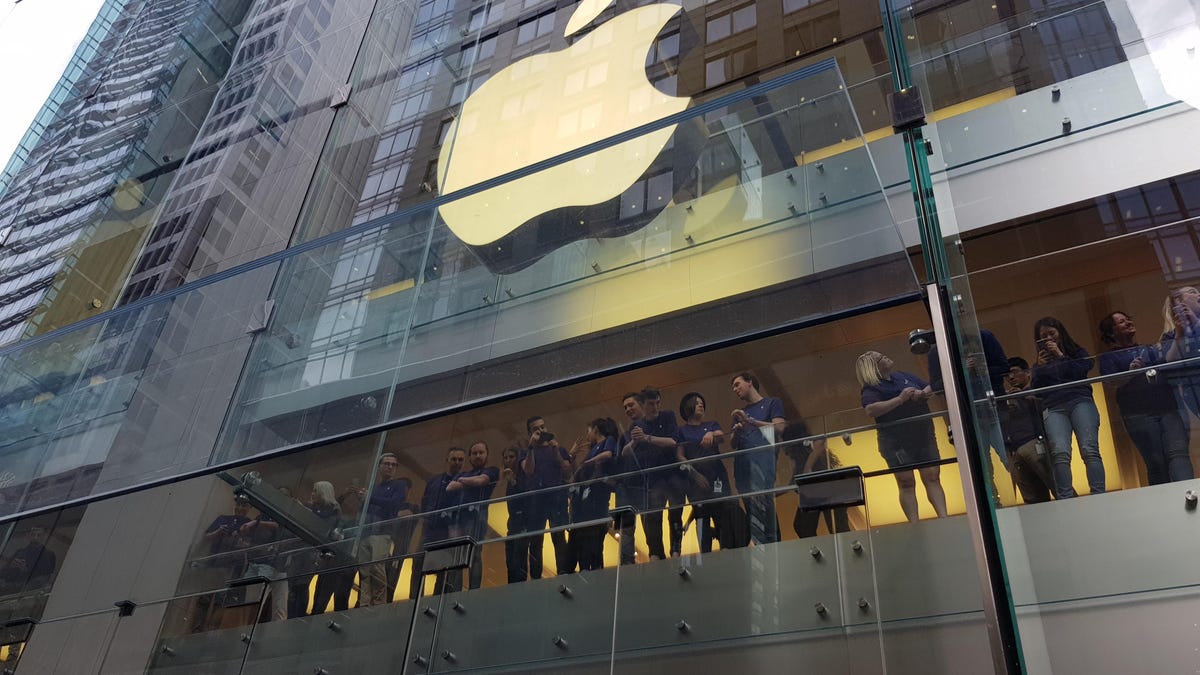Apple joins alliance to shrink your online videos
The iPhone maker becomes the last of tech's biggest companies to endorse compression technology designed to go easy on your data plan.

Apple quietly joined the Alliance for Open Media as a founding member.
For months, powerful companies including Google, Amazon, Microsoft and Facebook have been working to shrink online video sizes. But their work just got more important, because Apple has now joined the partnership too.
The Alliance for Open Media is working on technology called AV1 that compresses video before it's stored or sent over the network. That technology is crucial to keeping your phone from running out of storage space or your data plan from pushing past monthly limits. But compression technology is useful only when it's widely supported, and Apple was a major holdout.
Apple quietly joined the alliance as a founding member, according to the group's website, which was updated with the change Wednesday. Apple's plans for AV1 aren't yet clear -- the company didn't respond to a request for comment -- but joining as a founding member sends a strong signal of support.
"It's definitely a pretty significant development and a sign of how times change and persistence pays off," said Matt Frost, head of media strategy and partnerships for Google's Chrome team.
Frost should know. He once was chief executive of On2 Technologies, a video compression company Google acquired in 2010 for $123 million. The objective: release video technology that wasn't saddled with today's patent licensing burdens that require lawyers and expensive royalty payments. The first fruit of the effort, VP8, showed only modest success, attracting support from Mozilla, but Microsoft eventually signed up for its successor, VP9.
AV1 is a different beast, though. Mozilla and Cisco also contributed their own video compression technology, and they lined up support from major streaming-video companies including Amazon, Netflix and Hulu. Apple support would make AV1's prospects a notch stronger, especially since it's been a holdout till now.
The biggest VP8 and VP9 challenger has been the dominant standard called H.264 or AVC. Apple in 2017 championed its successor, called HEVC or H.265. But HEVC has been mired in patent problems as companies that contributed technology wrangle for lucrative royalty fees. Anyone hoping to use HEVC in products like operating systems, video software, cameras, processors, phones, Blu-ray players or TV networks must reckon with three separate HEVC patent licensing groups.
AV1 is still a work in progress, though the first version of the technology should be finalized in coming weeks. Mozilla, which supports an early version, said in November that AV1 cuts file sizes 25 percent to 35 percent compared to HEVC and VP9. Better compression can come with a problem, though: longer times to compress video and a greater burden on scarce computing resources like memory and battery life.
Although the Alliance for Open Media promises a royalty-free standard that will make adoption easier and cheaper, not everyone is convinced.
"There are a lot of companies that have patents tied to video compression and playback technology," said Frost & Sullivan analyst Dan Rayburn. "AV1 is still in the very early stages, but there is no guarantee that some technology companies won't try to enforce patents around it."
First published Jan. 4, 10:07 a.m. PT.
Update, 11:38 a.m. PT: Adds further detail on AV1 and comment from analyst Dan Rayburn.
CNET Magazine: Check out a sample of the stories in CNET's newsstand edition.
The Smartest Stuff: Innovators are thinking up new ways to make you, and the things around you, smarter.

